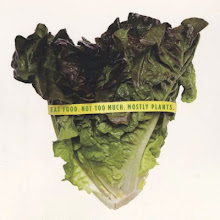SATISFACION
A couple days ago I went home to Wylie to do some family birthday celebratin’. We went out to eat at Genhis Grill then after that I caught up with some friends and chilled (I get real crunk right?). I got home at about 11:30 and decided to wind down the day with a couple guilty pleasures: reading nonfiction and playing mafia wars on facebook. I told you guys, this girl gets cr-izz-unk!
I was feeling in the mood for a late night snack so I grabbed a handful of almonds and proceeded to “ice Don Smith”. During my mindless clicking I became aware of something that had usually been an unconscious act. I stopped eating the almonds. I did not desire to eat the 10 nuts I had left. I was satisfied.
Sounds like a minute and trivial realization for a person undergoing such a stringent change in their diet? I don’t think so. I don’t think I’m the only person that has sat down with a bag of chips, shut off their brain while doing some thoughtless task, and then later had to ask themselves, “Who stole half the chips out of this bag because I know I didn’t eat all of them… Right?”
I have found that since eating whole, natural, clean foods I reach a point of satiety much quicker than I did before. I am able to rely on my body to tell me I no longer need to eat.
SOCIAL LEARNING AND EATING
One of my favorite books I read this summer was In Defense of Food by Michael Pollan (L-O-V-E, love, love, LOVE him.). The book, along with a list of others, is part of why I began my whole food escapade as it instructs in the tag line to “Eat food. Not too much. Mostly plants.”
Pollan references a memorable study conducted a few years back that examined how Americans come to the conclusion that they are full. He placed participants in a room and fed them soup. Half of the subjects were unknowingly eating from a bowl that was rigged to slowly refill after every bite. Those who ate from the trick bowl ended up eating on average TWO LITERS OF THE SOUP! Following the study participants commented, “The soup was pretty good… And pretty filling.” I'd imagine so.
Similarly, researcher Paul Rosen created a survey to compare French and American eating habits. One of the questions asked, “When do you stop eating?” The French responded, “When I’m full” or "When I'm satisfied." Americans on the other hand responded, “When my plate is empty".
I think it’s undeniable to say that part of the reason the French are a thinner, healthier society is partly because they are able to rely on internal cues as oppose to external cues. Through Rosen’s study he also found that Americans spend much less time at meals while eating a considerable amount more than the French. Thereby allowing the French to get more food experience while eating less.
LET’S TALK SCIENCE
Processed foods are also designed to make us eat more of them. It tinkers with how we function physiologically; it messes with our neurochemistry. Foods rich in cheap, low quality fats and sugars (aka just about anything processed) release endogenous opioids, a naturally produced chemical in your brain that has the effects of an opiate. You are chemically rewarded by these foods, but you are also forming an addiction much like a druggie would.
This is just how sugars and fats can effect your brain and perhaps even aid the the development of an addiction to food. There are a whole host of other food additives that are designed to enhance flavors, but really do nothing but train us to eat more and more without realizing... MSG anyone? Oh, and here’s my favorite “natural flavor”. What the hell is that supposed to mean? Basically anything they want it do, but usually it’s just altered chemicals.
Not to mention that low quality processed foods are calorically dense, but when it comes to nutrition and macro nutrients, are lacking. Your body never receives the nutrition it needs, so you keep seeking more and more foods to fill that biological demand.
SO NOW WHAT?
So we are culturally trained to overeat and physiologically/biochemically/neurologically tricked to eat beyond our natural point of satiety. As Americans we consume more of the bad stuff that tricks our bodies and brains into eating more and we are unable to genuinely listen to our body's nutritional needs. Maybe that's partly why we tend to rely on those external cues. Maybe it’s because we live in a society that celebrates bigger-fatter-faster-cheaper as a good lifestyle, and we continually push the boundaries (and up the belt sizes) to an even more warped view of what a relationship with food should look like. Like everything there’s no definitive answer, only a variety and a combination of theories.
But that leaves us with a variety of ways to get back to the basics of health huh? You could bring more intention and awareness to the act of eating at every meal. Stop half way and listen to your body. Maybe start by just giving up that mid afternoon coke or, arguably worse, diet coke. Hey man, it's whatever works for you.
I have an idea: Cut the crap for 31 days! Hmmm… I think I might give that a try.

Jenny,
ReplyDeleteI had the same experience of eating less with natural foods. I thought it was just that they weren't as tasty, but I think you're right - the nasty chemicals in the processed stuff are probably addictive in some way (not unlike cigarettes?) so we buy more.
Good, good, good for you.